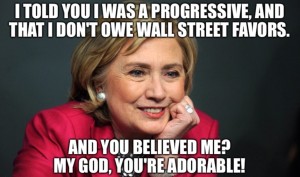Last time out I talked about poetry and the different ways in which language could be used. I want in this article to convey something about how language structures our existence. To do that, I need to talk about imagination and government.
Look around where you are right now – look up from the page in which you are reading these words and see all the different things there are that are close by. Is there anything that wasn’t first born in the imagination of some particular person? If you are in a room then that room was first designed by a human being; the paint on the walls and the features hanging there came from a person’s imagination; similarly, the furniture, the carpet, the cup of tea by your elbow – all these were first formed in someone’s imagination. If there are plants, it is highly unlikely that they are in a ‘natural’ state – no, these too have been formed by the human imagination. Possibly the best case for something around you that wasn’t first born in the imagination is if there is another human being nearby – but that’s worth a more thorough conversation at another time.
My point is simply that so much of the physical space that we inhabit is typically mediated by our imaginations – what we imagine is the parent of what has come to be. Our imaginations, therefore, are tremendously powerful and impactful upon our world. Which means that we need to play close attention to what we do with them.
Which brings me to the question of government. Is the government real? Most would say so. If someone didn’t believe that the government was real – as in, they truly were committed to that proposition – then they would cease to pay their taxes. There would then ensue certain consequences, up to and including the imprisonment of such a person. That wouldn’t necessarily convince that person themselves that the government existed, but it would persuade most onlookers to at least act as if the government were real.
Yet in what way can we call the government real? It is not a material ‘thing’. There is no object that we might touch and say ‘this is the government’, nor is there any person we might touch – not even our most gracious sovereign lady. We cannot walk up to 10 Downing Street and ask for the government, nor Whitehall – not even Town Hall in Colchester.
My point is simply that there are many things that we are normally quite happy to accept as real which do not qualify as material objects. In other words, there are realities in our lives that are not susceptible to scientific investigation, at least in the form that this has historically taken. We might suggest a spectrum of reality from things that are least involving of human beings – like the movements of planets – to those which are most involving – such as the operations of governments – and say that science is a more appropriate study of one end of that spectrum and less appropriate to the other. Adding, of course, that all parts of the spectrum are ‘real’.
The far end of the spectrum, the one that most involves human beings conducting human lives, is the realm which I am trying to point towards in this article. It is born in our imaginations and yet takes on a life of its own. There is no one person on whom our government depends. Should any person with a key role suddenly vanish out of existence, the government will carry on and simply replace that person with another who will take on the duties of the role. It is rather like an ant’s nest – if you remove any particular ant, the colony will carry on as if nothing has happened. If you stamp on the nest and then step back, the ants will simply reproduce the nest once more. The colony can be seen as having an existence separate from any of the constituent parts.
This doesn’t just apply to governments. It applies to all the various institutions and organisations that we human beings so like to form – churches, scientific bodies, golf clubs, theme parks, tribes, shopping centres – the whole glorious gamut of human endeavour. The Bible has a description for all of these things, calling them ‘principalities and powers’. The struggle with these things is the primary location for what Christians call ‘spiritual warfare’: in other words, the never ending attempt to become better people, more open to the will of God.
Now it might be argued, contrary to my ant colony example, that the government does not exist in any real sense. To use the language of my previous article, the materialist would argue that because there is no specific material correlate to the word ‘government’ then it has no ultimate reality. It is simply a construct of human thinking.
What provokes a wry smile in me when I ponder such an argument is simply that it is one that Richard Dawkins’ own work has done quite a lot to undermine. After all, it is Dawkins who coined the understanding of memes. Memes are mental constructs that exist independently of the human minds in which they operate. Dawkins argues that religions specifically are defective memes, viruses of the mind. There is a remarkable correspondence between what Dawkins has begun to describe as ‘memes’ and what the Christian tradition has considered to be the principalities and powers – they are both, using different languages, describing some of the fundamental building blocks of distinctively human life.
This, finally, is why religions pay very close attention to our use of language, and seek to regulate that language through things like prohibitions against blasphemy. When we speak differently we live differently. Words and names have immense power, for both good and ill – which is why Plato, the original fascist, sought to ban the poets. As language is born from our minds, so is the world in which we live structured by our imaginations. If we do not govern our imaginations well then we shall end up being governed in unimaginably bad ways.



You must be logged in to post a comment.